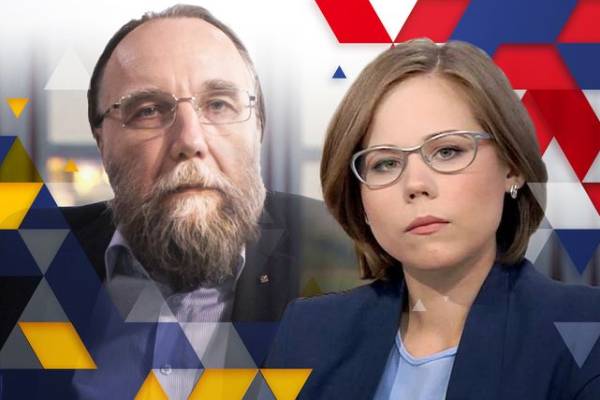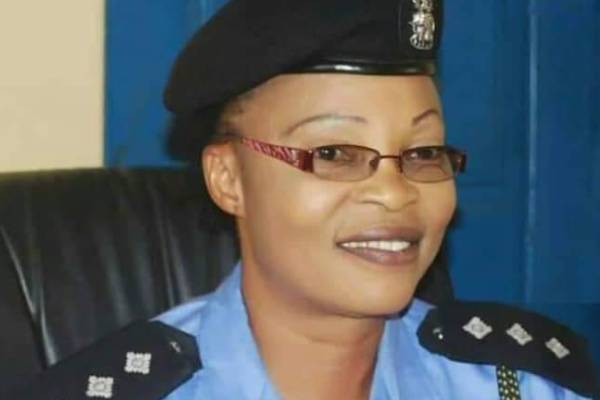Russia has blamed Ukrainian special services for the murder of Darya Dugina, a Russian political commentator and the daughter of prominent ultranationalist ideologue Alexander Dugin, according to Russian state news agency TASS.
“The murder of journalist Darya Dugina has been solved, it was prepared by the Ukrainian special services, by a citizen of Ukraine,” TASS reported, citing Russia’s Federal Security Service (FSB), which named a woman as the perpetrator and said she had fled to Estonia after the attack.
Ukraine has denied any involvement in Dugina’s killing, calling the FSB claims fiction.
“We have nothing to do with the murder of this lady — this is the work of the Russian special services,” said Oleksii Danylov, secretary of Ukraine’s National Security Council, in an interview on Ukrainian television Monday.
“I emphasize once again that our special services have nothing to do with this,” he said.
Dugina, the editor of a Russian disinformation website, died after a bomb planted in a car she was driving went off in the outskirts of Moscow on Saturday evening.
The FSB said that the assailant was a Ukrainian woman who arrived in Russia on July 23 with her young daughter, TASS reported. The pair attended a festival on Saturday near Moscow where Dugina was a guest of honor.
“The criminals used a Mini Cooper car to monitor the journalist,” TASS reported, citing the FSB, adding that the woman had rented an apartment in Moscow in the same building where Dugina lived.
After remotely detonating explosives planted in Dugina’s Toyota Land Cruiser Prado, the FSB said the woman and her daughter drove through the Pskov region to Estonia, roughly a 12-hour journey.
Estonia’s Police and Border Guard said Monday it only shares cross-border movement information “in cases as determined by the law” and not because of Russian accusations in the media.
The agency’s media representative Ragne Keisk also told CNN in an email that the border force had “not received any formal information or request from the Russian authorities on this topic.”
The Estonian Foreign Ministry said it could not comment and directed inquiries to the country’s Justice Ministry and Border Guard.
Mykhailo Podolyak, a key adviser to Ukrainian President Volodymyr Zelensky, said on Monday that the FSB accusation was reflective of the “fictional world” in which Russian propaganda thrives.
“Ru-propaganda lives in a fictional world: [Ukrainian] woman and her 12-year-old child were ‘assigned’ responsible for blowing up the car of propagandist Dugina. Surprisingly, they did not find the ‘Estonian visa’ on the spot,” he said on Twitter.
Ukrainian Defense Intelligence spokesman Andriy Yusov also rejected Russia’s claims on Monday as “fake.”
“It is a fake that Ukraine is involved in this. It is a fake that the National Guard of Ukraine is involved in these events. The National Guard is fulfilling its legal tasks at the territory of Ukraine,” Yusov said in a statement.
Yusov then redirected responsibility for the blast back on Russia, saying: “This looks more like sorting things out within Russia. Both Dugin and his daughter are marginal characters and not a point of interest to Ukraine.”
Dugina’s father, Alexander Dugin, is a prominent Russian nationalist credited with being the architect or “spiritual guide” of President Vladimir Putin’s invasion of Ukraine.
At a memorial service on Tuesday, Dugin said his daughter “died for our victory, our Russian victory, for the sake of the Orthodoxy of our country, our state.”
“She had no fear, and the last thing she said, when we talked at the Festival of Tradition, she said to me: ‘Dad, I feel like a warrior, I feel like a hero. I want to be like this, I don’t want any other fate. I want to be with my people, with my country,'” Dugin continued.
Both father and daughter have been sanctioned by the United States and the United Kingdom for acting to destabilize Ukraine.
The US Treasury sanctioned Dugina in March as the chief editor for the disinformation website United World International, which it claimed was owned by Putin ally Yevgeny Prigozhin and pushed messages suggesting Ukraine would “perish” if it was admitted to NATO.





